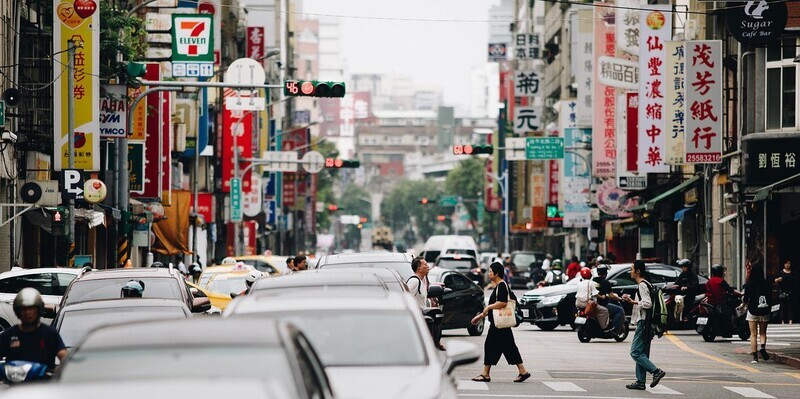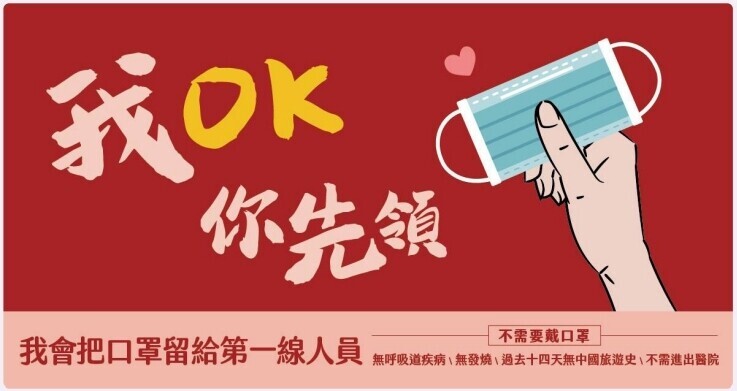hankyoreh
Links to other country sites 다른 나라 사이트 링크
Secrets behind Taiwan’s status as No. 1 happiest nation in Asia

According to the UN World Happiness Report published in March, Taiwan is the happiest country in Asia, not including the Middle East.
Taiwan’s happiness score this year was 6.512 points, ranking 26th among the 146 countries considered. That was far ahead of not only China (72nd), but also Japan (54th) and South Korea (59th).
This wasn’t Taiwan’s first year to score so highly, either. It’s maintained that trend for four years now, since 2018.
The UN happiness report draws upon six metrics to estimate happiness: GDP per capita (based on purchasing power), social support (whether a respondent has people who can help in times of trouble), healthy life expectancy, freedom to make life choices, generosity (whether people have donated money over the past month), and freedom from corruption (measured by whether people think corruption is widespread).
Taiwan outscored Korea on three of those six metrics: social support, generosity, and freedom to make life choices. In Gallup’s concurrent Global Emotions Report, which assesses positive and negative emotions, Taiwan ranked 41st in positive emotions, which asks respondents how many funny, enjoyable and interesting things happened the day before. That was considerably higher than Korea, at 117th.
The island country hasn’t always been Asia’s leader in happiness. In the 2013 report, Korea and Taiwan both had a score of 6.2 points, placing around 40th globally.
But since then, the two countries have moved in different directions. Korea has slipped down in the rankings as its happiness indicators have tumbled, while Taiwan has continued to move higher and higher.
Three reasons for the rise in Taiwan’s happiness indexHow have the Taiwanese been able to maintain those happiness indicators despite increasing economic pressure and military threats from China?
On June 29, the Data Center for Quality of Life Studies at Korea’s National Assembly Futures Institute published the National Happiness Focus report, analyzing the causes of Taiwan’s increasing levels of happiness.
According to this report, the shift occurred when power changed hands from the Chinese Nationalist Party, or Kuomintang, to the Democratic Progressive Party in 2016.
As recently as the early 2010s, the report said, social distrust was rampant among Taiwanese, with young people mocking Taiwan as being a “ghost island.” But after Tsai Ing-wen became president, Taiwan began regaining its social and economic vitality, both through the adoption of a minimum wage and other pro-working-class policies and through strategic support for semiconductors and other key industries.
“Examining changes in six happiness indicators for each year enabled us to deduce that the rise in Taiwanese happiness has been driven by three factors: material living standards, social support and freedom to make life choices,” said Heo Jong-ho, director of the data center.
Most notable was the improvement in quality of life brought by brisk economic growth. Despite the COVID-19 pandemic, Taiwanese exports have been stronger than ever before over the past two years. The Korean economy faltered in 2020, posting negative growth, but the Taiwanese economy has grown at a rapid clip: 3.1% in 2020 and 6.28% in 2021.
A driving force behind that export bonanza is Taiwan Semiconductor Manufacturing Co., the world’s top semiconductor foundry.
Backed by those exports, Taiwan residents face the exciting prospect of soon overtaking Korea in terms of per capita GDP. According to statistics from the International Monetary Fund, Taiwan had a per capita GDP of US$33,775 in 2021, right behind Korea at US$34,801.
In addition, trust in the government was buoyed by the success of the government’s robust response to COVID-19 early during the pandemic.
When the country faced a shortfall of masks, the government was able to respond effectively by quickly setting up a digital mask distribution system and incorporating a “mask map” that had been developed by private individuals. That system became the model for the Korean government’s mask rationing system, which limited mask purchases to certain days of the week based on year of birth.

Taiwan’s number of confirmed cases of COVID-19 has surged recently since the government pivoted to a policy of living with the disease. But according to statistics provided by the Johns Hopkins Coronavirus Resource Center, Taiwan’s COVID-19 mortality rate is currently at 27 per 100,000 population, much lower than Korea’s mortality rate of 48 per 100,000.
“That was the result of a constellation of factors, including rapid action against the disease based on experience with SARS in 2003, robust testing for the virus, strict vetting of people entering the country, appropriate distribution of personal protective equipment, transparent dissemination of information about the virus, and an advanced public health system,” the report said.
Growing trust in the communication and transparency of the Tsai administration, which has prioritized openness in the government, motivated citizens to actively embrace wearing masks and staying inside.
“When masks were in short supply early in the pandemic, Taiwan was able to effectively respond to the crisis situation through the ‘I’m OK, you first’ campaign that developed on social networks,” the report said.
Lessons to learn in “Hell Joseon”The third factor has been expanding freedom and social integration through reform measures.
The Taiwanese government has taken advantage of the country’s economic success to strengthen social safety nets by raising the minimum wage and child care subsidies. At the same time, it has expanded citizens’ social freedom by adopting an open-minded stance on identity politics issues such as gender and minorities.
In 2019, for example, Taiwan became the first Asian country to legalize same-sex marriage.
The report noted the significance of Taiwan achieving internal democracy and freedom despite the continuing hostility of its external relationship with mainland China.
In 2021, Taiwan ranked 7th in the world on a freedom index published by US-based Freedom House. In the Press Freedom Index that Reporters Without Borders updated in 2021, Taiwan ranked 43rd, right after Korea at 42nd. And this February, Taiwan placed 8th in the world in the 2021 Democracy Index tracked by the UK-based Economist Intelligence Unit, showcasing Taiwan’s vibrant democracy.
The report emphasized that the higher happiness levels on what was once mocked as a “ghost island” have important lessons for Korean society, which some deride as “Hell Joseon.”
“As we emerge from the strictures of COVID-19 and return to everyday life, how can we increase happiness in Korea? What we need is a concerted push by the government to expand freedom, unify society and restore trust in government policy while also minimizing the harm of a global economic recession,” said Heo.
By Kwak No-pil, senior staff writer
Please direct questions or comments to [english@hani.co.kr]

Editorial・opinion
![[Column] Season 2 of special prosecutor probe may be coming to Korea soon [Column] Season 2 of special prosecutor probe may be coming to Korea soon](https://flexible.img.hani.co.kr/flexible/normal/500/300/imgdb/original/2024/0426/3317141030699447.jpg) [Column] Season 2 of special prosecutor probe may be coming to Korea soon
[Column] Season 2 of special prosecutor probe may be coming to Korea soon![[Column] Park Geun-hye déjà vu in Yoon Suk-yeol [Column] Park Geun-hye déjà vu in Yoon Suk-yeol](https://flexible.img.hani.co.kr/flexible/normal/500/300/imgdb/original/2024/0424/651713945113788.jpg) [Column] Park Geun-hye déjà vu in Yoon Suk-yeol
[Column] Park Geun-hye déjà vu in Yoon Suk-yeol- [Editorial] New weight of N. Korea’s nuclear threats makes dialogue all the more urgent
- [Guest essay] The real reason Korea’s new right wants to dub Rhee a founding father
- [Column] ‘Choson’: Is it time we start referring to N. Korea in its own terms?
- [Editorial] Japan’s rewriting of history with Korea has gone too far
- [Column] The president’s questionable capacity for dialogue
- [Column] Are chaebol firms just pizza pies for families to divvy up as they please?
- [Column] Has Korea, too, crossed the Rubicon on China?
- [Correspondent’s column] In Japan’s alliance with US, echoes of its past alliances with UK
Most viewed articles
- 1After election rout, Yoon’s left with 3 choices for dealing with the opposition
- 2Why Kim Jong-un is scrapping the term ‘Day of the Sun’ and toning down fanfare for predecessors
- 3Two factors that’ll decide if Korea’s economy keeps on its upward trend
- 4Noting shared ‘values,’ Korea hints at passport-free travel with Japan
- 5AI is catching up with humans at a ‘shocking’ rate
- 646% of cases of violence against women in Korea perpetrated by intimate partner, study finds
- 7Why Korea shouldn’t welcome Japan’s newly beefed up defense cooperation with US
- 8‘We must say no’: Seoul defense chief on Korean, USFK involvement in hypothetical Taiwan crisis
- 9[Column] Season 2 of special prosecutor probe may be coming to Korea soon
- 10Fast Food Workers’ Day comes to South Korea